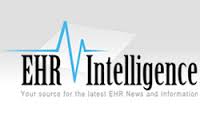 It was thus fitting that Estonia, the current EU presidency, brought together Ministers from 32 countries (under the umbrellas of the EU and European Free Trade Association) to adopt the Tallinn Declaration on E-Government, creating a renewed political dynamism coupled with legal tools to accelerate the implementation of a range of existing EU policy instruments (e.g., the e-Government Action Plan and ISA² program). Perhaps the most significant development for open source supporters is the explicit recognition of open source software (OSS) as a key driver towards achieving ambitious governmental digitisation goals by 2020.
It was thus fitting that Estonia, the current EU presidency, brought together Ministers from 32 countries (under the umbrellas of the EU and European Free Trade Association) to adopt the Tallinn Declaration on E-Government, creating a renewed political dynamism coupled with legal tools to accelerate the implementation of a range of existing EU policy instruments (e.g., the e-Government Action Plan and ISA² program). Perhaps the most significant development for open source supporters is the explicit recognition of open source software (OSS) as a key driver towards achieving ambitious governmental digitisation goals by 2020.
lack of interoperability
See the following -
An Epic conflict of interest
Meet Judy Faulkner. She is the founder and CEO of Epic Systems Corporation in Wisconsin. She is also a member of the GAO Health Information Technology Policy Committee and an advisory board member of the Journal of Healthcare Information Management. She is also politically active...The $787 billion stimulus bill signed into law by President Obama in February 2009 included $19 billion for healthcare information technology (HIT), and created the Health IT Policy Committee, whose job it was to advise the federal government on spending the $19 billion allocation. The committee was to have one member responsible for representing information technology vendors. Judy Faulkner was designated as that member.
- Login to post comments
An Epic Conflict of Interest: Part 2
So we are left to wonder whether patient care and best practices are being sacrificed on the altar of favoritism, cronyism and special deals. If it matters to you what kind of care patients are receiving and how HIT systems contribute to the quality of patient care, then Faulkner’s willingness to prioritize political back-scratching above quality HIT practices ought to raise alarms.
- Login to post comments
Barack Obama Puts Cronyism Above Cybersecurity
 Just last week, the UCLA Health system run by Epic suffered a cyber attack affecting up to 4.5 million personal and medical records, including Social Security numbers, Medicare and health-plan identifiers, birthdays and physical addresses...The university’s top doctors and medical staff market their informatics expertise and consulting services to other Epic customers “to ensure the successful implementation and optimization of your Epic EHR.” Will they be sharing their experience having to mop up the post-cyber-attack mess involving their Epic infrastructure?...
Just last week, the UCLA Health system run by Epic suffered a cyber attack affecting up to 4.5 million personal and medical records, including Social Security numbers, Medicare and health-plan identifiers, birthdays and physical addresses...The university’s top doctors and medical staff market their informatics expertise and consulting services to other Epic customers “to ensure the successful implementation and optimization of your Epic EHR.” Will they be sharing their experience having to mop up the post-cyber-attack mess involving their Epic infrastructure?...
- Login to post comments
Bingo Medicine: Are EHRs Oppressive Straightjackets?
 For several decades, software builders have tried to help doctors practice medicine more efficiently and more effectively. As is often the case with good intentions, the results turned out to be a mixed bag of goods, with paternalistic overtones from the helpers and mostly resentment and frustration from those supposedly being helped. Whether we want to admit it or not, the facts of the matter are that health IT and EHRs in particular have turned from humble tools of the trade to oppressive straightjackets for the practice of medicine. Somewhere along the way, the roles were reversed, and clinicians of all stripes are increasingly becoming the tools used by technology to practice medicine.
For several decades, software builders have tried to help doctors practice medicine more efficiently and more effectively. As is often the case with good intentions, the results turned out to be a mixed bag of goods, with paternalistic overtones from the helpers and mostly resentment and frustration from those supposedly being helped. Whether we want to admit it or not, the facts of the matter are that health IT and EHRs in particular have turned from humble tools of the trade to oppressive straightjackets for the practice of medicine. Somewhere along the way, the roles were reversed, and clinicians of all stripes are increasingly becoming the tools used by technology to practice medicine.
- Login to post comments
CMS Inclusion of API’s for Stage 3 Meaningful Use Rule is the Right Decision
 One of these rules, the decoupling of EHR certification and meaningful use brings some hope to those looking to build upon established EHRs and other health databases. Prior to this, there has been a very tightly held belief that EHR systems would contain the answers needed to fulfill all governmental regulations, something that has not been shown to be the case. EHR’s are becoming very important tools for healthcare delivery, yet their regimented, and for the most part proprietary data storage models, do not allow for easy customization to meet the needs of our patients and the various healthcare professionals dependent upon them for day-to-day management of patients.
One of these rules, the decoupling of EHR certification and meaningful use brings some hope to those looking to build upon established EHRs and other health databases. Prior to this, there has been a very tightly held belief that EHR systems would contain the answers needed to fulfill all governmental regulations, something that has not been shown to be the case. EHR’s are becoming very important tools for healthcare delivery, yet their regimented, and for the most part proprietary data storage models, do not allow for easy customization to meet the needs of our patients and the various healthcare professionals dependent upon them for day-to-day management of patients.
- Login to post comments
EHR Use Hindered by Revenue Loss, Lack of Interoperability
 EHR use has been on the rise since the 2009 passing of the Health Information Technology for Economic and Clinical Health (HITECH) Act provided financial incentives for EHR implementation. However, do the gains of EHR adoption outweigh the substantial costs? A recent study written by Tara O’Neill of the American Action Forum takes a look at these questions and states that although there are considerable benefits to EHR adoption, these come with costs that can only be resolved with changes in healthcare policy...
EHR use has been on the rise since the 2009 passing of the Health Information Technology for Economic and Clinical Health (HITECH) Act provided financial incentives for EHR implementation. However, do the gains of EHR adoption outweigh the substantial costs? A recent study written by Tara O’Neill of the American Action Forum takes a look at these questions and states that although there are considerable benefits to EHR adoption, these come with costs that can only be resolved with changes in healthcare policy...
- Login to post comments
Epic Systems Feeling Heat Over Interoperability
Epic Systems' August decision to retain a Washington lobbyist was widely seen as a sign that the leading electronic health-record system vendor is feeling political heat based on the perceived lack of interoperability between its EHR systems and other systems.
- Login to post comments
Europe Pledges Support For Open Source Government Solutions
- Login to post comments
European technology companies launch Coalition for Competitive Digital Markets
 A group of 23 technology companies operating in Europe from 14 different countries and a business association of more than 45,000 digital SMEs announced today a new coalition to advocate for fair rules in digital markets. The Coalition for Competitive Digital Markets aims to contribute to a more balanced and open digital environment. Today’s internet is dominated by services and products offered by a small number of dominant online platforms, such as Apple, Google, Facebook and Amazon. These so-called “gatekeepers” control consumers’ access to information and abuse their position in order to limit market access for European businesses that offer alternative business models and services such as search, email, social media, operating systems and browsers.
A group of 23 technology companies operating in Europe from 14 different countries and a business association of more than 45,000 digital SMEs announced today a new coalition to advocate for fair rules in digital markets. The Coalition for Competitive Digital Markets aims to contribute to a more balanced and open digital environment. Today’s internet is dominated by services and products offered by a small number of dominant online platforms, such as Apple, Google, Facebook and Amazon. These so-called “gatekeepers” control consumers’ access to information and abuse their position in order to limit market access for European businesses that offer alternative business models and services such as search, email, social media, operating systems and browsers.
- Login to post comments
Germany's Healthcare System Is Using This Open Source Standard For Encrypted Instant Messaging
 A fast-growing open communication platform has been picked by the German healthcare system to support instant messaging between health professionals and organizations across the country. Called Matrix, the platform will provide German developers with the infrastructure, tools and protocols to build custom-made applications that will let up to 150,000 healthcare organizations securely share messages, data, images and files.
A fast-growing open communication platform has been picked by the German healthcare system to support instant messaging between health professionals and organizations across the country. Called Matrix, the platform will provide German developers with the infrastructure, tools and protocols to build custom-made applications that will let up to 150,000 healthcare organizations securely share messages, data, images and files.
- Login to post comments
Health Organizations Implore Congress to Fund Public Health Surveillance Systems
 HLN Consulting joined more than eighty organizations, institutions, and companies in imploring Congress to fund public health surveillance systems. The appropriations request letters – one to the House and one to the Senate – seek one billion in funding over ten years (and $100 million in FY 2020) for the Centers for Disease Control and Prevention (CDC). This funding would allow CDC, state, local, tribal, and territorial health departments to move from sluggish, manual, paper-based data collection to seamless, automated, interoperable IT systems and to recruit and retain skilled data scientists to use them.
HLN Consulting joined more than eighty organizations, institutions, and companies in imploring Congress to fund public health surveillance systems. The appropriations request letters – one to the House and one to the Senate – seek one billion in funding over ten years (and $100 million in FY 2020) for the Centers for Disease Control and Prevention (CDC). This funding would allow CDC, state, local, tribal, and territorial health departments to move from sluggish, manual, paper-based data collection to seamless, automated, interoperable IT systems and to recruit and retain skilled data scientists to use them.
- Login to post comments
HIMSS18: Seema Verma - Making the patient the center of our health care system
 I’ve always been struck by how seldom the patient is mentioned in discussions around value-based care. Let me be clear, we will not achieve value-based care until we put the patient at the center of our healthcare system. Until patients can make their own decisions based on quality and value health care costs will continue to grow at an unsustainable rate. This administration is dedicated to putting patients first, to be empowered consumers of health care that have the information they need to be engaged and active decision-makers in their care. Through this empowerment, there will be a competitive advantage for providers that deliver coordinated, quality care, at the best value, to attract patients who are shopping for value.
I’ve always been struck by how seldom the patient is mentioned in discussions around value-based care. Let me be clear, we will not achieve value-based care until we put the patient at the center of our healthcare system. Until patients can make their own decisions based on quality and value health care costs will continue to grow at an unsustainable rate. This administration is dedicated to putting patients first, to be empowered consumers of health care that have the information they need to be engaged and active decision-makers in their care. Through this empowerment, there will be a competitive advantage for providers that deliver coordinated, quality care, at the best value, to attract patients who are shopping for value.
- Login to post comments
How disparate EHR systems, lack of interoperability contribute to physician stress, burnout
 Physician burnout is an increasingly common issue in healthcare, and there are a lot of factors that can contribute to it. Long hours, paperwork and the burden of administrative tasks all play a part. But electronic medical records can also contribute to burnout, largely because each system is different. With disparate electronic health record systems comes an added hardship for physicians, affecting their work -- and their reimbursement. Compounding the issue is that many physicians are no longer limited to just one facility. Many handle rounds at multiple hospitals and/or practices, and if each has its own EMR system that doesn't necessarily communicate with the others, it can be a growing headache.
Physician burnout is an increasingly common issue in healthcare, and there are a lot of factors that can contribute to it. Long hours, paperwork and the burden of administrative tasks all play a part. But electronic medical records can also contribute to burnout, largely because each system is different. With disparate electronic health record systems comes an added hardship for physicians, affecting their work -- and their reimbursement. Compounding the issue is that many physicians are no longer limited to just one facility. Many handle rounds at multiple hospitals and/or practices, and if each has its own EMR system that doesn't necessarily communicate with the others, it can be a growing headache.
- Login to post comments
Is Cloud Faxing the Solution to the Health IT Usability and Interoperability Crisis?
 The Healthcare industry is in profound crisis as the HITECH Act of 2009 led medical facilities across the United States to spend in excess of $3 trillion on the purchase and implementation of expensive electronic health records (EHRs) under the Meaningful Use program. Yet, the most fundamental goals of electronic records Nirvana that were promised have not been achieved. For multiple reasons, EHRs have turned out to lack usability and be non-interoperable. In fact, most monopoly EHR vendors are engaged in what is commonly called “data blocking.” In most cases physicians are unable to obtain medical records for the patients they are seeing and patients have a hard time getting a hold of their own medical records. That means that the medical records are not available at the most important moment, the caregiver/patient encounter, and are not available to the patients themselves and their family members.
The Healthcare industry is in profound crisis as the HITECH Act of 2009 led medical facilities across the United States to spend in excess of $3 trillion on the purchase and implementation of expensive electronic health records (EHRs) under the Meaningful Use program. Yet, the most fundamental goals of electronic records Nirvana that were promised have not been achieved. For multiple reasons, EHRs have turned out to lack usability and be non-interoperable. In fact, most monopoly EHR vendors are engaged in what is commonly called “data blocking.” In most cases physicians are unable to obtain medical records for the patients they are seeing and patients have a hard time getting a hold of their own medical records. That means that the medical records are not available at the most important moment, the caregiver/patient encounter, and are not available to the patients themselves and their family members.
- The Future Is Open
- Login to post comments
Is Machine Interoperability the Next Unusable Level of Meaningful Use?
 As the HIMSS15 extravaganza is getting under way, and every EHR vendor flush with cash from the Meaningful Use bonanza is preparing to take its unusable product to the next level, machine interoperability is shaping up to be the belle of the ball. A simple minded person may be tempted to wonder why people who, for decades, manufactured and sold EHRs that don’t talk to each other, are all of a sudden possessed by interoperability fever. The answer is deceptively simple. After exhausting the artificially created market for EHRs, these powerful captains of industry figured out that extracting rents for machine interoperability is the next big thing.
As the HIMSS15 extravaganza is getting under way, and every EHR vendor flush with cash from the Meaningful Use bonanza is preparing to take its unusable product to the next level, machine interoperability is shaping up to be the belle of the ball. A simple minded person may be tempted to wonder why people who, for decades, manufactured and sold EHRs that don’t talk to each other, are all of a sudden possessed by interoperability fever. The answer is deceptively simple. After exhausting the artificially created market for EHRs, these powerful captains of industry figured out that extracting rents for machine interoperability is the next big thing.
- Login to post comments